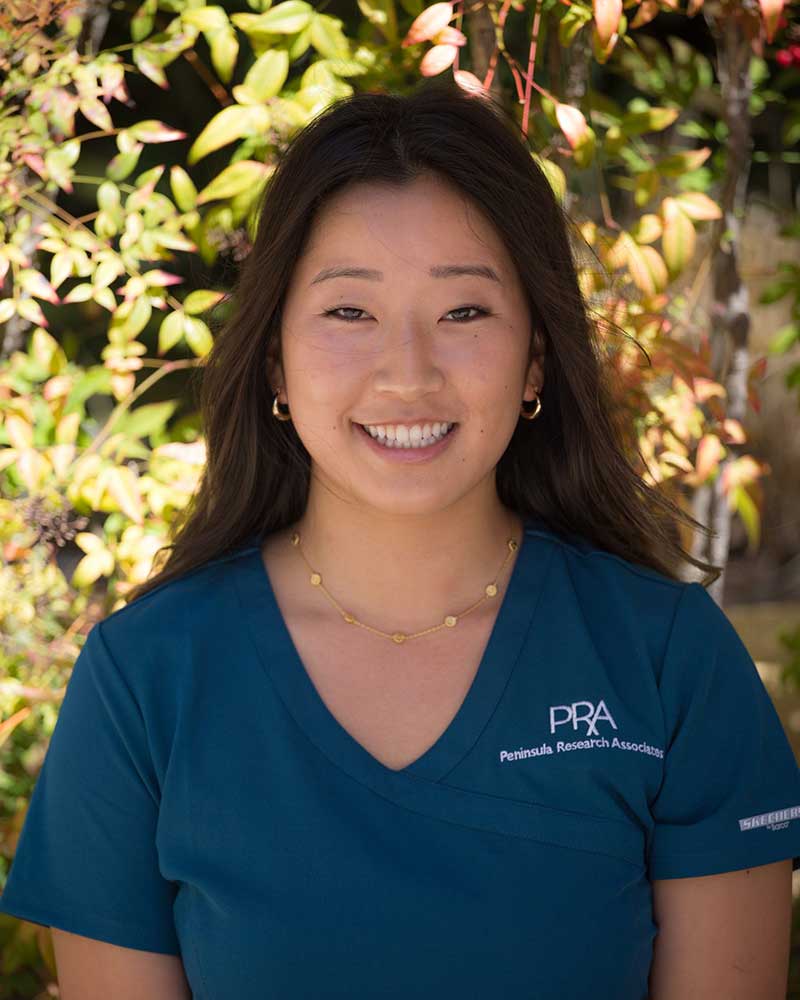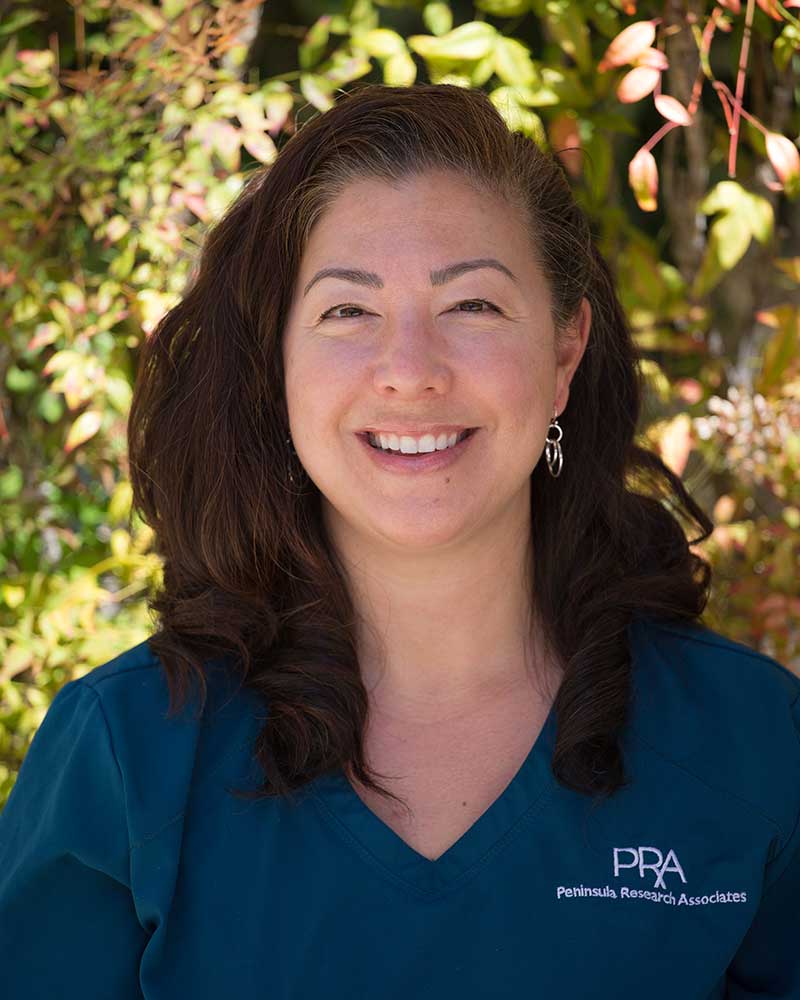Glossary of Terms
Choosing to participate in a research study (clinical trial) is an important personal decision. The following glossary of terms provides detailed information about research studies. In addition, it is often helpful to talk to a physician, family members, or friends about deciding to join a trial. After identifying some trial options, the next step is to contact the study research staff and ask questions about specific trials.
Glossary of Terms
The following glossary was prepared to help the consumer become familiar with many of the common terms used in clinical trials.
An unwanted effect caused by the administration of drugs. Onset may be sudden or develop over time. See Side Effects.
Organizations and groups that actively support participants and their families with valuable resources, including self-empowerment and survival tools.
In the U.S., the Food and Drug Administration (FDA) must approve a substance as a drug before it can be marketed. The approval process involves several steps including pre-clinical laboratory and animal studies, clinical trials for safety and efficacy, filing of a New Drug Application by the manufacturer of the drug, FDA review of the application, and FDA approval/rejection of the application. See Food and Drug Administration.
Any of the treatment groups in a randomized trial. Most randomized trials have two arms, but some have three arms or even more. See Randomized Trial.
- Information gathered at the beginning of a study from which variations found in the study are measured.
- A known value or quantity with which an unknown is compared when measured or assessed.
- The initial time point in a clinical trial, just before a participant starts to receive the experimental treatment that is being tested. At this reference point, measurable values such as CD4 count are recorded. Safety and efficacy of a drug are often determined by monitoring changes from the baseline values.
When a point of view prevents impartial judgment on issues relating to the subject of that point of view. In clinical studies, bias is controlled by blinding and randomization. See Blind and Randomization.
A randomized trial is blind if the participant is not told which arm of the trial he or she is on. A clinical trial is blind if participants are unaware of whether they are in the experimental or control arm of the study; also called masked. See Single Blind Study and Double Blind Study.
Pertaining to or founded on observation and treatment of participants, as distinguished from theoretical or basic science.
See Endpoint.
A medical researcher in charge of carrying out a clinical trial’s protocol.
A clinical trial is a research study to answer specific questions about vaccines, new therapies, or new ways of using known treatments. Clinical trials (also called medical research and research studies) are used to determine whether new drugs or treatments are both safe and effective. Carefully conducted clinical trials are the fastest and safest way to find treatments that work in people.
Trials are in four phases: Phase I tests a new drug or treatment in a small group; Phase II expands the study to a larger group of people; Phase III expands the study to an even larger group of people; and Phase IV takes place after the drug or treatment has been licensed and marketed. See Phase I, II, III, and IV Trials.
In epidemiology, a group of individuals with some characteristics in common.
A clinical trial conducted primarily through primary-care physicians rather than academic research facilities.
A method of providing experimental therapeutics prior to final FDA approval for use in humans. This procedure is used with very sick individuals who have no other treatment options. Often, case-by-case approval must be obtained from the FDA for “compassionate use” of a drug or therapy.
Broad range of healing philosophies, approaches, and therapies that Western (conventional) medicine does not commonly use to promote well-being or treat health conditions. Examples include acupuncture, herbs, etc. See www.nccam.nih.gov.
See Recruitment Status.
Refers to maintaining the confidentiality of trial participants including their personal identity and all personal medical information. The trial participants’ consent to the use of records for data verification purposes should be obtained prior to the trial, and assurance must be given that confidentiality will be maintained.
A specific circumstance when the use of certain treatments could be harmful.
A control is the nature of the intervention control.
The standard by which experimental observations are evaluated. In many clinical trials, one group of patients will be given an experimental drug or treatment, while the control group is given either a standard treatment for the illness or a placebo. See Placebo and Standard Treatment.
Control is a standard against which experimental observations may be evaluated. In clinical trials, one group of participants is given an experimental drug, while another group (i.e., the control group) is given either a standard treatment for the disease or a placebo.
An independent committee, composed of community representatives and clinical research experts, that reviews data while a clinical trial is in progress to ensure that participants are not exposed to undue risk. A DSMB may recommend that a trial be stopped if there are safety concerns or if the trial objectives have been achieved.
Refers to trials that are conducted to find better tests or procedures for diagnosing a particular disease or condition. Diagnostic trials usually include people who have signs or symptoms of the disease or condition being studied.
A clinical trial in which two or more doses of an agent (such as a drug) are tested against each other to determine which dose works best and is least harmful.
A clinical trial design in which neither the participating individuals nor the study staff knows which participants are receiving the experimental drug and which are receiving a placebo (or another therapy). Double-blind trials are thought to produce objective results, since the expectations of the doctor and the participant about the experimental drug do not affect the outcome; also called double-masked study. See Blinded Study, Single-Blind Study, and Placebo.
See Double-Blind Study.
A modification of the effect of a drug when administered with another drug. The effect may be an increase or a decrease in the action of either substance, or it may be an adverse effect that is not normally associated with either drug.
See Data Safety and Monitoring Board.
The maximum ability of a drug or treatment to produce a result regardless of dosage. A drug passes efficacy trials if it is effective at the dose tested and against the illness for which it is prescribed. In the procedure mandated by the FDA, Phase II clinical trials gauge efficacy, and Phase III trials confirm it. See Food and Drug Administration (FDA) and Phase II and III Trials.
Summary criteria for participant selection; includes inclusion and exclusion criteria. See Inclusion/Exclusion Criteria.
Based on experimental data, not on a theory.
Overall outcome that the protocol is designed to evaluate. Common endpoints are severe toxicity, disease progression, or death.
The act of signing up participants into a study. Generally this process involves evaluating a participant with respect to the eligibility criteria of the study and going through the informed consent process.
The branch of medical science that deals with the study of incidence and distribution and control of a disease in a population.
See Inclusion/Exclusion Criteria.
A drug that is not FDA licensed for use in humans, or as a treatment for a particular condition. See Off-Label Use.
See Food and Drug Administration.
The U.S. Department of Health and Human Services agency responsible for ensuring the safety and effectiveness of all drugs, biologics, vaccines, and medical devices, including those used in the diagnosis, treatment, and prevention of HIV infection, AIDS, and AIDS-related opportunistic infections. The FDA also works with the blood banking industry to safeguard the nation’s blood supply. See www.fda.gov.
A supposition or assumption advanced as a basis for reasoning or argument, or as a guide to experimental investigation.
The medical or social standards determining whether a person may or may not be allowed to enter a clinical trial. These criteria are based on such factors as age, gender, the type and stage of a disease, previous treatment history, and other medical conditions. It is important to note that inclusion and exclusion criteria are not used to reject people personally, but rather to identify appropriate participants and keep them safe.
See Investigational New Drug.
The process of learning the key facts about a clinical trial before deciding whether or not to participate. It is also a continuing process throughout the study to provide information for participants. To help someone decide whether or not to participate, the doctors and nurses involved in the trial explain the details of the study.
A document that describes the rights of the study participants, and includes details about the study, such as its purpose, duration, required procedures, and key contacts. Risks and potential benefits are explained in the informed consent document. The participant then decides whether or not to sign the document. Informed consent is not a contract, and the participant may withdraw from the trial at any time.
A committee of physicians, statisticians, researchers, community advocates, and others that ensures that a clinical trial is ethical and that the rights of study participants are protected. All clinical trials in the U.S. must be approved by an IRB before they begin. Every institution that conducts or supports biomedical or behavioral research involving human participants must, by federal regulation, have an IRB that initially approves and periodically reviews the research in order to protect the rights of human participants.
Analysis of clinical trial results that includes all data from participants in the groups to which they were randomized (see Randomization) even if they never received the treatment.
The generic name of the precise intervention being studied.
Primary interventions being studied. The types of interventions are Drug, Gene Transfer, Vaccine, Behavior, Device, and Procedure.
A new drug, antibiotic drug, or biological drug that is used in a clinical investigation. It also includes a biological product used in vitro for diagnostic purposes.
See Institutional Review Board.
The knowledge of intervention assignment. See Blind.
Study of the natural development of something (such as an organism or a disease) over a period of time.
An application submitted by the manufacturer of a drug to the FDA, after clinical trials have been completed—for a license to market the drug for a specified indication.
A drug prescribed for conditions other than those approved by the FDA.
A clinical trial in which doctors and participants know which drug or vaccine is being administered.
An FDA category that refers to medications used to treat diseases and conditions that occur rarely. There is little financial incentive for the pharmaceutical industry to develop medications for these diseases or conditions. Orphan drug status, however, gives a manufacturer specific financial incentives to develop and provide such medications.
Review of a clinical trial by experts chosen by the study sponsor. These experts review the trials for scientific merit, participant safety, and ethical considerations.
The processes (in a living organism) of absorption, distribution, metabolism, and excretion of a drug or vaccine.
Initial studies to determine the metabolism and pharmacologic actions of drugs in humans and the side effects associated with increasing doses, and to gain early evidence of effectiveness; may include healthy participants and/or patients.
Controlled clinical studies conducted to evaluate the effectiveness of the drug for a particular indication or indications in patients with the disease or condition under study, and to determine the common short-term side effects and risks.
Expanded controlled and uncontrolled trials after preliminary evidence suggesting effectiveness of the drug has been obtained; intended to gather additional information to evaluate the overall benefit-risk relationship of the drug and provide and adequate basis for physician labeling.
Post-marketing studies to delineate additional information including the drug’s risks, benefits, and optimal use.
A placebo is an inactive pill, liquid, or powder that has no treatment value. In clinical trials, experimental treatments are often compared with placebos to assess the treatment’s effectiveness. See Placebo Controlled Study.
A method of investigation of drugs in which an inactive substance (the placebo) is given to one group of participants, while the drug being tested is given to another group. The results obtained in the two groups are then compared to see if the investigational treatment is more effective in treating the condition.
A physical or emotional change, occurring after a substance is taken or administered, that is not the result of any special property of the substance. The change may be beneficial, reflecting the expectations of the participant and, often, the expectations of the person giving the substance.
Refers to the testing of experimental drugs in the test tube or in animals—the testing that occurs before trials in humans may be carried out.
Refers to trials to find better ways to prevent disease in people who have never had the disease or to prevent a disease from returning. These approaches may include medicines, vaccines, vitamins, minerals, or lifestyle changes.
A study plan on which all clinical trials are based. The plan is carefully designed to safeguard the health of the participants as well as answer specific research questions. A protocol describes what types of people may participate in the trial; the schedule of tests, procedures, medications, and dosages; and the length of the study. While in a clinical trial, participants following a protocol are seen regularly by the research staff to monitor their health and to determine the safety and effectiveness of their treatment. See Inclusion/Exclusion Criteria.
Refers to trials that explore ways to improve comfort and quality of life for individuals with a chronic illness.
A method based on chance by which study participants are assigned to a treatment group. Randomization minimizes the differences among groups by equally distributing people with particular characteristics among all the trial arms. The researchers do not know which treatment is better. From what is known at the time, any one of the treatments chosen could be of benefit to the participant. See Arm.
A study in which participants are randomly (i.e., by chance) assigned to one of two or more treatment arms of a clinical trial. Occasionally placebos are utilized. See Arm and Placebo.
The period during which a trial is attempting to identify and enroll participants. Recruitment activities can include advertising and other ways of soliciting interest from possible participants. See Recruitment Status and Enrolling.
Indicates the current stage of a trial, whether it is planned, ongoing, or completed. Possible values include:
- Not yet recruiting: Participants are not yet being recruited or enrolled
- Recruiting: Participants are currently being recruited and enrolled
- Enrolling by invitation: Participants are being (or will be) selected from a predetermined population
- Active, not recruiting: Study is ongoing (i.e., patients are being treated or examined), but enrollment has completed
- Completed: The study has concluded normally; participants are no longer being examined or treated (i.e., last patient’s last visit has occurred)
- Suspended: Recruiting or enrolling participants has halted prematurely but potentially will resume
- Terminated: Recruiting or enrolling participants has halted prematurely and will not resume; participants are no longer being examined or treated
- Withdrawn: Study halted prematurely, prior to enrollment of first participant
The risk to individual participants versus the potential benefits. The risk/benefit ratio may differ depending on the condition being treated.
Refers to trials that test the best way to detect certain diseases or health conditions.
Any undesired actions or effects of a drug or treatment. Negative or adverse effects may include headache, nausea, hair loss, skin irritation, or other physical problems. Experimental drugs must be evaluated for both immediate and long-term side effects. See Adverse Reaction.
A study in which one party, either the investigator or participant, is unaware of what medication the participant is taking; also called single-masked study. See Blind and Double-Blind Study.
See Single-Blind Study.
A treatment currently in wide use and approved by the FDA, considered to be effective in the treatment of a specific disease or condition.
Treatment regimen or medical management based on state-of-the-art participant care.
The probability that an event or difference occurred by chance alone. In clinical trials, the level of statistical significance depends on the number of participants studied and the observations made, as well as the magnitude of differences observed.
A primary or secondary outcome used to judge the effectiveness of a treatment.
The primary investigative techniques used in an observational protocol; types are Purpose, Duration, Selection, and Timing.
See Recruitment Status.
See Recruitment Status.
An adverse effect produced by a drug that is detrimental to the participant’s health. The level of toxicity associated with a drug will vary depending on the condition that the drug is used to treat.
IND stands for Investigational New Drug application, which is part of the process to get approval from the FDA for marketing a new prescription drug in the U.S. It makes promising new drugs available to desperately ill participants as early in the drug development process as possible. Treatment INDs are made available to participants before general marketing begins, typically during Phase III studies. To be considered for a treatment IND, a participant cannot be eligible to be in the definitive clinical trial.
Refers to trials that test new treatments, new combinations of drugs, or new approaches to surgery or radiation therapy.
See Recruitment Status.
Glossary Sources (we have made minor changes to this copy):
AIDSinfo: Glossary of HIV/AIDS-Related Terms 4th Edition.
CenterWatch, Inc. Patient Resources: Glossary.
ECRI (formerly the Emergency Care Research Institute).
Eli Lilly and Company: Lilly Clinical Trials Glossary.
MediStudy.com Inc: ClinicalTrials: A-Z Glossary.
National Cancer Institute: Cancer.gov Dictionary.

 Alissa is a board-certified family nurse practitioner with extensive experience in clinical research across pediatric, adolescent, and adult populations. As an Investigator at PRA, she leverages her expertise to support diverse areas of clinical trials to support advancements in healthcare.
Alissa is a board-certified family nurse practitioner with extensive experience in clinical research across pediatric, adolescent, and adult populations. As an Investigator at PRA, she leverages her expertise to support diverse areas of clinical trials to support advancements in healthcare. Paige began working as a clinical research coordinator at Peninsula Research Associates in 2020. Since joining our team, she has worked on various clinical trials, including COVID-19 antibody treatment studies, a phase II recombinant protein COVID-19 vaccine study, a phase I mRNA COVID-19 vaccine study and a phase III pneumococcal vaccine study. Paige is passionate about helping patients receive quality healthcare through clinical research.
Paige began working as a clinical research coordinator at Peninsula Research Associates in 2020. Since joining our team, she has worked on various clinical trials, including COVID-19 antibody treatment studies, a phase II recombinant protein COVID-19 vaccine study, a phase I mRNA COVID-19 vaccine study and a phase III pneumococcal vaccine study. Paige is passionate about helping patients receive quality healthcare through clinical research. Kristen joined the PRA team as a clinical research coordinator in 2018. She primarily works with Oral Immunotherapy (OIT) food allergy trials, including peanut and egg allergy studies. Her study on Palforzia just got approved by the FDA! She will soon be leading a study involving OIT multi-food allergies. Additionally, Kristen’s areas of research include asthma, atopic dermatitis, COVID-19 vaccines, COVID-19 antibody treatments, and pneumococcal vaccines.
Kristen joined the PRA team as a clinical research coordinator in 2018. She primarily works with Oral Immunotherapy (OIT) food allergy trials, including peanut and egg allergy studies. Her study on Palforzia just got approved by the FDA! She will soon be leading a study involving OIT multi-food allergies. Additionally, Kristen’s areas of research include asthma, atopic dermatitis, COVID-19 vaccines, COVID-19 antibody treatments, and pneumococcal vaccines. Heather has been working as a clinical research coordinator at Peninsula Research Associates since 2017. She currently devotes her time to PRA’s phase III trials, focusing primarily on asthma, atopic dermatitis and diabetes studies. Heather helps maintain a high level of patient care while ensuring our research goals are being met.
Heather has been working as a clinical research coordinator at Peninsula Research Associates since 2017. She currently devotes her time to PRA’s phase III trials, focusing primarily on asthma, atopic dermatitis and diabetes studies. Heather helps maintain a high level of patient care while ensuring our research goals are being met. Monika manages the research coordinators and research assistants at Peninsula Research Associates. She also currently works on PRA’s trials in the following areas; COVID-19 and non-COVID-19 Vaccines, COVID-19 Monoclonal Antibodies, Quality of Life/Exercise Capacity asthma, atopic dermatitis and eosinophilic esophagitis. She helps the PRA team maintain a high level of patient care while ensuring our research goals are being met.
Monika manages the research coordinators and research assistants at Peninsula Research Associates. She also currently works on PRA’s trials in the following areas; COVID-19 and non-COVID-19 Vaccines, COVID-19 Monoclonal Antibodies, Quality of Life/Exercise Capacity asthma, atopic dermatitis and eosinophilic esophagitis. She helps the PRA team maintain a high level of patient care while ensuring our research goals are being met. Debbie Cappy began working with Dr. Sher in 1991 and has played a key role in over 300 clinical research trials. Debbie’s areas of expertise include allergic rhinitis, asthma, attention-deficit/hyperactivity disorder, autism, chronic obstructive pulmonary disease, diabetes, hypercholesterolemia, infectious diseases, otitis media, pain management, sleep disorders, vaccinations, women’s health, and, most recently, COVID-19 vaccinations and treatments.
Debbie Cappy began working with Dr. Sher in 1991 and has played a key role in over 300 clinical research trials. Debbie’s areas of expertise include allergic rhinitis, asthma, attention-deficit/hyperactivity disorder, autism, chronic obstructive pulmonary disease, diabetes, hypercholesterolemia, infectious diseases, otitis media, pain management, sleep disorders, vaccinations, women’s health, and, most recently, COVID-19 vaccinations and treatments. As Chief Financial Officer, Renée manages all cost, managerial, and financial accounting for Peninsula Research Associates. She is responsible for the day-to-day administration of accounts receivable, accounts payable, payroll, benefits, and human resources. In addition to assisting management with important financial decisions, Renée also prepares forecasts, budgets, and financial statements. Renée’s expertise includes determining ways to reduce costs and meeting the legal requirements to keep the financial state of Peninsula Research Associates in good standing.
As Chief Financial Officer, Renée manages all cost, managerial, and financial accounting for Peninsula Research Associates. She is responsible for the day-to-day administration of accounts receivable, accounts payable, payroll, benefits, and human resources. In addition to assisting management with important financial decisions, Renée also prepares forecasts, budgets, and financial statements. Renée’s expertise includes determining ways to reduce costs and meeting the legal requirements to keep the financial state of Peninsula Research Associates in good standing. Leigh Ann is a board licensed family nurse practitioner. She serves as a research sub-investigator for many of our studies at Peninsula Research Associates. Her primary focus is on food allergy treatments, eczema, asthma and COVID-19 vaccines and treatments.
Leigh Ann is a board licensed family nurse practitioner. She serves as a research sub-investigator for many of our studies at Peninsula Research Associates. Her primary focus is on food allergy treatments, eczema, asthma and COVID-19 vaccines and treatments. Dr. Sher completed his medical degree at the University of Utah School of Medicine (1983) and residency in pediatrics (1987) and fellowship in allergy and immunology at the University of California Los Angeles.
Dr. Sher completed his medical degree at the University of Utah School of Medicine (1983) and residency in pediatrics (1987) and fellowship in allergy and immunology at the University of California Los Angeles.